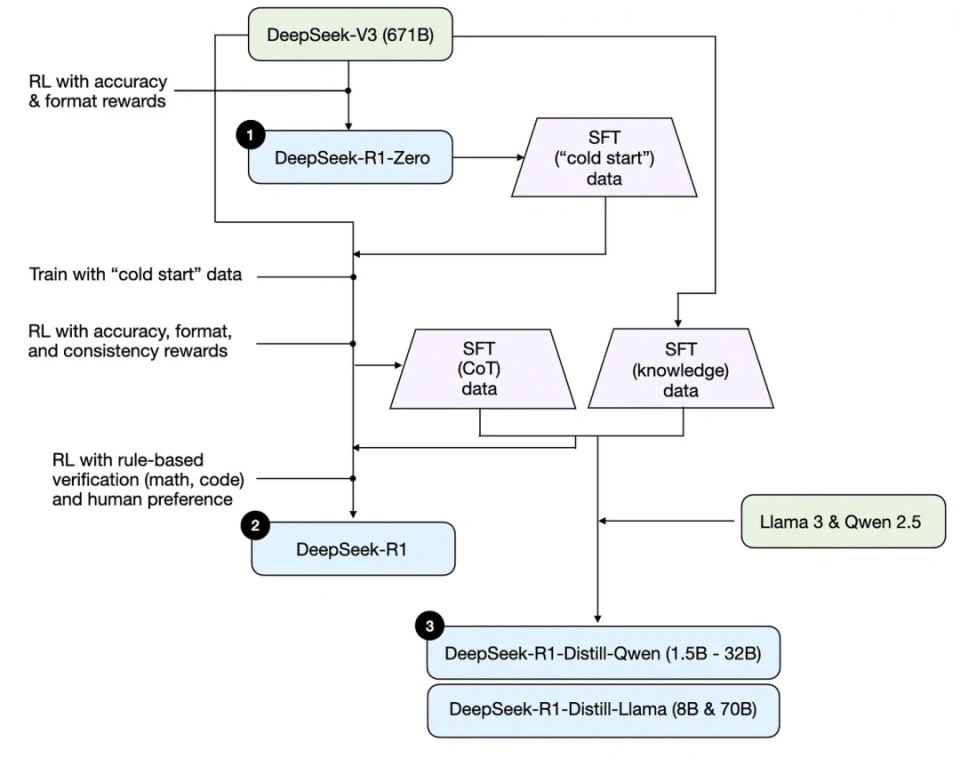This article originated from a special invitation by Tencent News' "Hot Questions" column. During the 2025 Chinese New Year, our founder, Levy Cheng, joined the platform and shared in-depth insights on the widely discussed topic, "Will AI make fortune tellers jobless?", elaborating on FateTell's technological foundation and global vision.
Tencent News (part of Chinese internet giant Tencent), as the organizer, is a comprehensive media platform covering over 1 billion users. Relying on the WeChat ecosystem, it serves as a crucial window for observing technological and social trends.
The following is the original report.
Tencent News - Hot Questions Column: DeepSeek "Fortune-Telling" Explodes in Popularity. Why Do Some Users Find It So Accurate? Has AI Taken Fortune Tellers' Jobs?
Levy: I graduated from Hong Kong University of Science and Technology and started my AI venture in Hong Kong back in 2016. Influenced by Hong Kong's regional culture, I began exploring the combination of AI and traditional culture (like Chinese classical studies and I Ching) then.
Currently, I'm fully dedicated to building an AI-powered divination product for the global market, hoping to contribute to the spread and development of traditional culture overseas.
Let me state the conclusion first: AI won't completely replace traditional fortune tellers, but it will reshape the industry's ecosystem.
Just as AlphaGo ushered in a new era for Go, AI-powered divination could give rise to a new school of "computational metaphysics." Future top-tier divination services will involve a "dual-brain collaboration" model, combining AI's precise calculations with human emotional wisdom. In this process, traditional practitioners who master AI tools will find unprecedented opportunities for growth.
The Underlying Logic of AI Divination
"Fortune-telling," also known as numerology consulting and reasoning, has its core in "reasoning" . Therefore, fortune-telling is essentially a task that requires multi-step "calculation" with clear "reasoning" steps.
A year ago, I surmised that the improvement in mathematical and coding capabilities of large language models (LLMs) like ChatGPT would inevitably generalize to other strong reasoning scenarios. Fortune-telling is a typical example of such a scenario. In fact, even before DeepSeek's boom, we observed a significant improvement in fortune-telling capabilities on reasoning models like ChatGPT o1 pro. However, the $200 monthly fee deterred too many people. The free DeepSeek-R1 essentially served as a "popularization" for this concept.

The Interplay Between AI and Human Diviners
From a professional standpoint, large language models like DeepSeek still have fundamental issues, especially the well-known "hallucinations." Currently, when it comes to accurate chart plotting or calculating major and yearly cycles, relying solely on the model can lead to many factual misjudgments, and there are many engineering details involved here.
Furthermore, unlike math and coding, large model companies like DeepSeek obviously won't heavily optimize their models for niche scenarios like "fortune-telling." Specific expert algorithms and industry knowledge not found on the public internet are also difficult for the model to truly "internalize."
However, due to the meticulousness and completeness of reasoning models' "chains of thought," they have indeed surpassed many novice diviners whose "brain computational power" isn't sufficient. What's truly exciting for the future is the possibility of using Reinforcement Learning (RL) to enable AI to discover rules and algorithms that even human diviners haven't yet found. This would be similar to AlphaGo's "move 37" (in its match against Lee Sedol, this move had a one-in-one-hundred-thousand probability and would never be played by a human, but it was later proven to be a "stroke of genius" autonomously discovered by AI through reinforcement learning).
The Core of Global Entrepreneurship
Our team's core is AI, and we've simply chosen the divination sector. Perhaps due to my background in legal AI, I've always viewed divination consultation as a "professional service" similar to legal consultation. The problems that need to be solved in a divination scenario (industry data, expert knowledge, vertical agents, etc.) are, in my opinion, no different in essence from those in law, finance, or healthcare.
It just so happens that my team and I have accumulated extensive expert resources and professional know-how in this field, making it highly suitable for further innovation through this generation of AI technology. Coupled with my long-standing passion for traditional Chinese studies and culture, I'm very excited to contribute to the major trend of traditional Chinese culture going global.
Among FateTell's paying users, approximately 60% are female, indicating a relatively balanced gender distribution. The "destiny" concerns are also quite similar, predominantly focusing on wealth and career luck. An AI that helps with fortune-telling will more closely resemble a positive psychology counselor, or serve to attract good fortune and avoid misfortune. Regarding its market space and prospects, I believe fortune-telling has always been a deeply ingrained cultural gene for Chinese people. Its survival through thousands of years indicates that it undoubtedly meets various psychological and cultural needs of the public.
Click here to read the original article:

